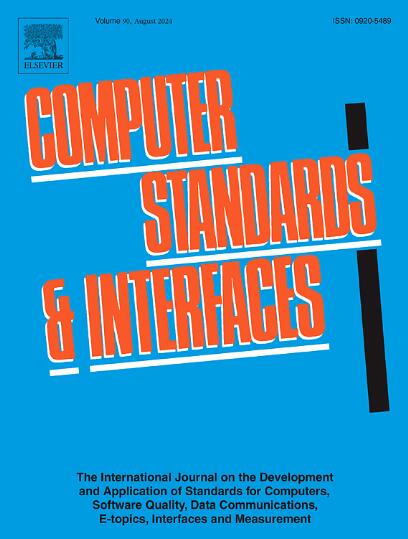Standardization in artificial general intelligence model for education
IF 4.1
2区 计算机科学
Q1 COMPUTER SCIENCE, HARDWARE & ARCHITECTURE
引用次数: 0
Abstract
The application of Artificial General Intelligence Models (AGIMs) in education has been identified as a promising emerging field. However, extensive research has revealed limitations in using AGIM in education, particularly in terms of controllability, trustworthiness, explainability, evaluation and feedback, security, and privacy. Therefore, standardization in AGIMs for Education (AGIME) is urgently required to provide normative guidance for developing artificial intelligence systems in education. This study first explores an AGIME standardization process with the methodology of use case collection and iterative research. We then propose the definition and attributes of AGIME and establish a standard system framework for the AGIME life cycle. This framework includes published specifications such as information model, data specification, evaluation specification, and application requirements on teaching and learning. We introduce standard application cases to validate the effectiveness of AGIME standard system framework. Finally, we present several specifications currently under development within this standard system, including interface, regulatory, operation and maintenance, and security, ethics, and privacy specifications. This study provides references for AGIME development and deployment, ensuring the technical stability, data credibility, evaluation accuracy, and pedagogical applicability of AGIME.
通用人工智能教育模型的标准化
通用人工智能模型(AGIMs)在教育中的应用已被确定为一个有前景的新兴领域。然而,广泛的研究揭示了AGIM在教育中使用的局限性,特别是在可控性、可信度、可解释性、评估和反馈、安全性和隐私性方面。因此,迫切需要对教育领域的人工智能系统(AGIMs for Education, agme)进行标准化,为教育领域的人工智能系统开发提供规范性指导。本研究首先用用例收集和迭代研究的方法探索了agme标准化过程。提出了agme的定义和属性,并建立了agme生命周期的标准体系框架。该框架包括发布的规范,如信息模型、数据规范、评估规范和教与学的应用需求。通过标准应用案例验证了agme标准系统框架的有效性。最后,我们介绍了该标准体系中目前正在开发的几个规范,包括接口、监管、操作和维护、安全、道德和隐私规范。本研究为agme的开发和部署提供了参考,保证了agme的技术稳定性、数据可信度、评估准确性和教学适用性。
本文章由计算机程序翻译,如有差异,请以英文原文为准。
求助全文
约1分钟内获得全文
求助全文
来源期刊

Computer Standards & Interfaces
工程技术-计算机:软件工程
CiteScore
11.90
自引率
16.00%
发文量
67
审稿时长
6 months
期刊介绍:
The quality of software, well-defined interfaces (hardware and software), the process of digitalisation, and accepted standards in these fields are essential for building and exploiting complex computing, communication, multimedia and measuring systems. Standards can simplify the design and construction of individual hardware and software components and help to ensure satisfactory interworking.
Computer Standards & Interfaces is an international journal dealing specifically with these topics.
The journal
• Provides information about activities and progress on the definition of computer standards, software quality, interfaces and methods, at national, European and international levels
• Publishes critical comments on standards and standards activities
• Disseminates user''s experiences and case studies in the application and exploitation of established or emerging standards, interfaces and methods
• Offers a forum for discussion on actual projects, standards, interfaces and methods by recognised experts
• Stimulates relevant research by providing a specialised refereed medium.
 求助内容:
求助内容: 应助结果提醒方式:
应助结果提醒方式:


